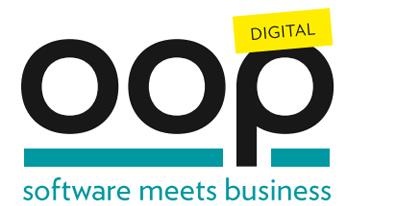- Deutsch
- Contact
- Newsletter

Conference Program
Please note:
On this site, there is only displayed the English speaking sessions of the OOP 2022 Digital. You can find all conference sessions, including the German speaking ones, here.
The times given in the conference program of OOP 2022 Digital correspond to Central European Time (CET).
By clicking on "EVENT MERKEN" within the lecture descriptions you can arrange your own schedule. You can view your schedule at any time using the icon in the upper right corner.
Rust in a Polyglot World, from Client to Cloud
While Rust is typically pitched as systems programming language, it is equally adept at application development thanks to its high level features and great tooling. In addition to increased performance, native code has the advantage that it can easily be reused across different system components, an advantage even more pronounced in polyglot environments. In this talk, we would like to present our experience of using Rust to write core components in such a polyglot system.
Target Audience: Architects, Developers
Prerequisites: Basic knowledge of Python, Java
Level: Advanced
Extended Abstract
While Rust is typically pitched as systems programming language, it is equally adept at application development thanks to its high level features and great tooling. In addition to increased performance, native code has the advantage that it can easily be reused across different system components, an advantage even more pronounced in polyglot environments.
In this talk, we would like to present our experience of using Rust to write core components in such a polyglot system. The systems spans different contexts, from client to cloud, and different programming languages, from Python to Java, respectively. We will showcase how the Rust language itself and its tooling simplified this task and discuss different integration patterns.
Data Scientist

